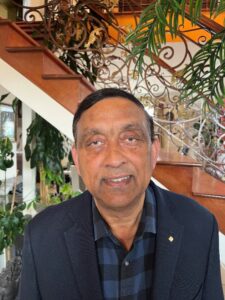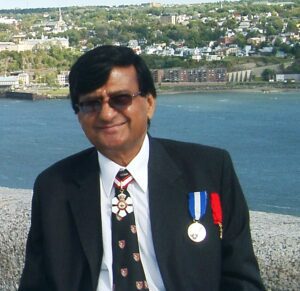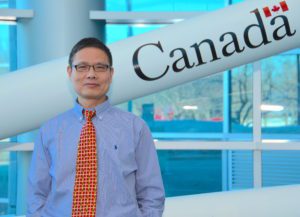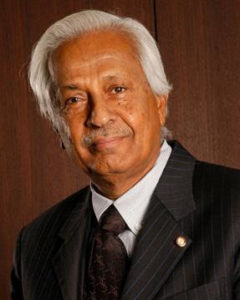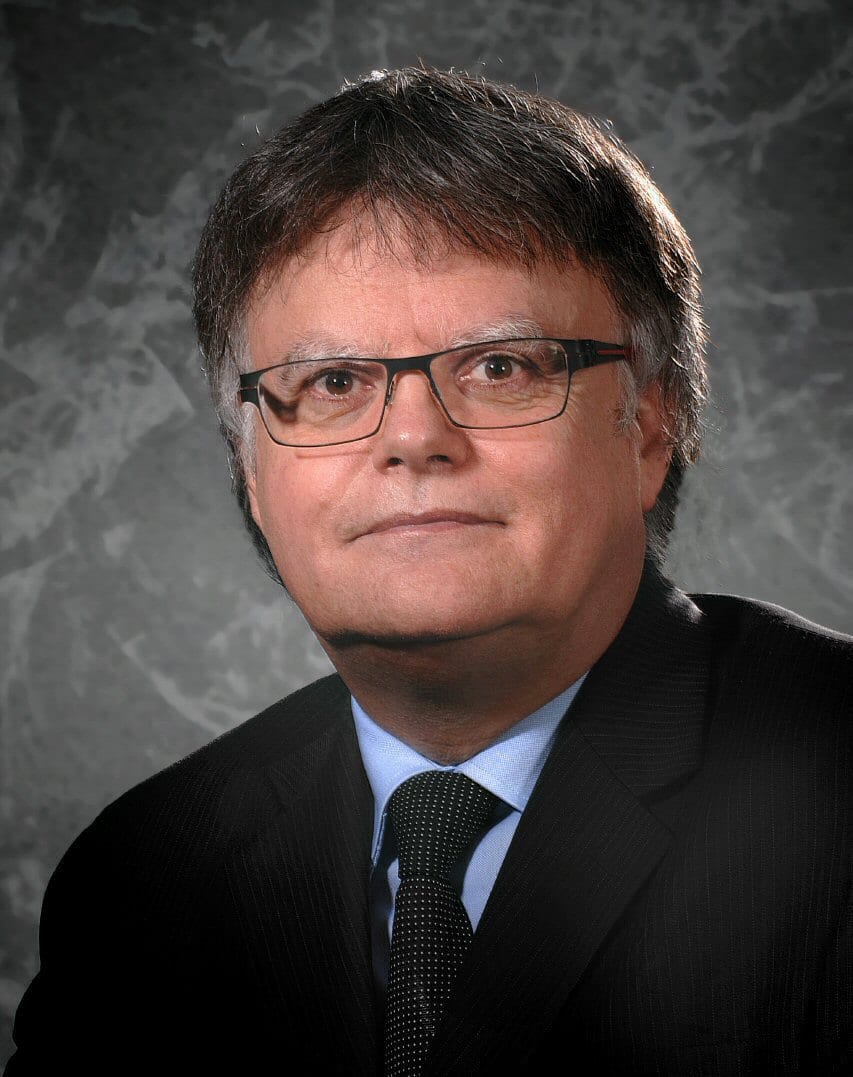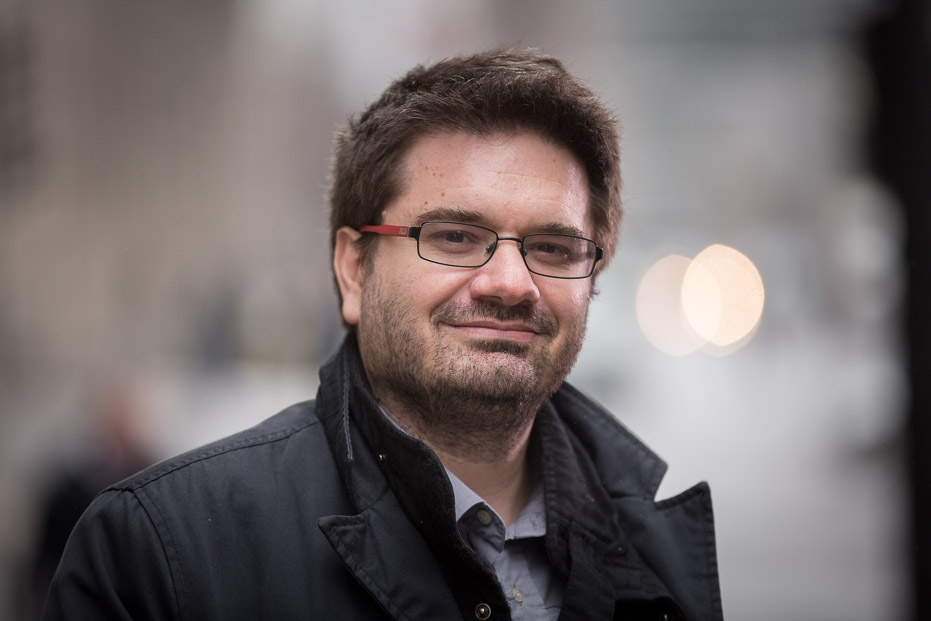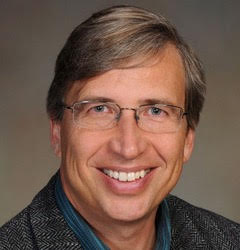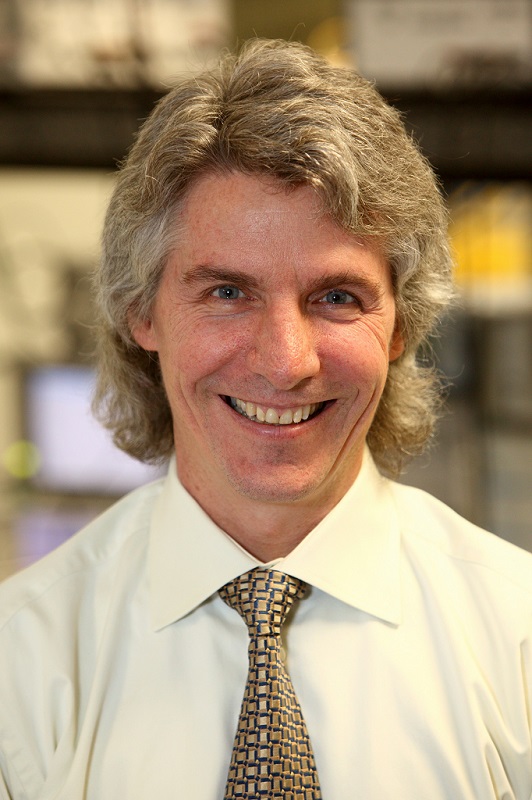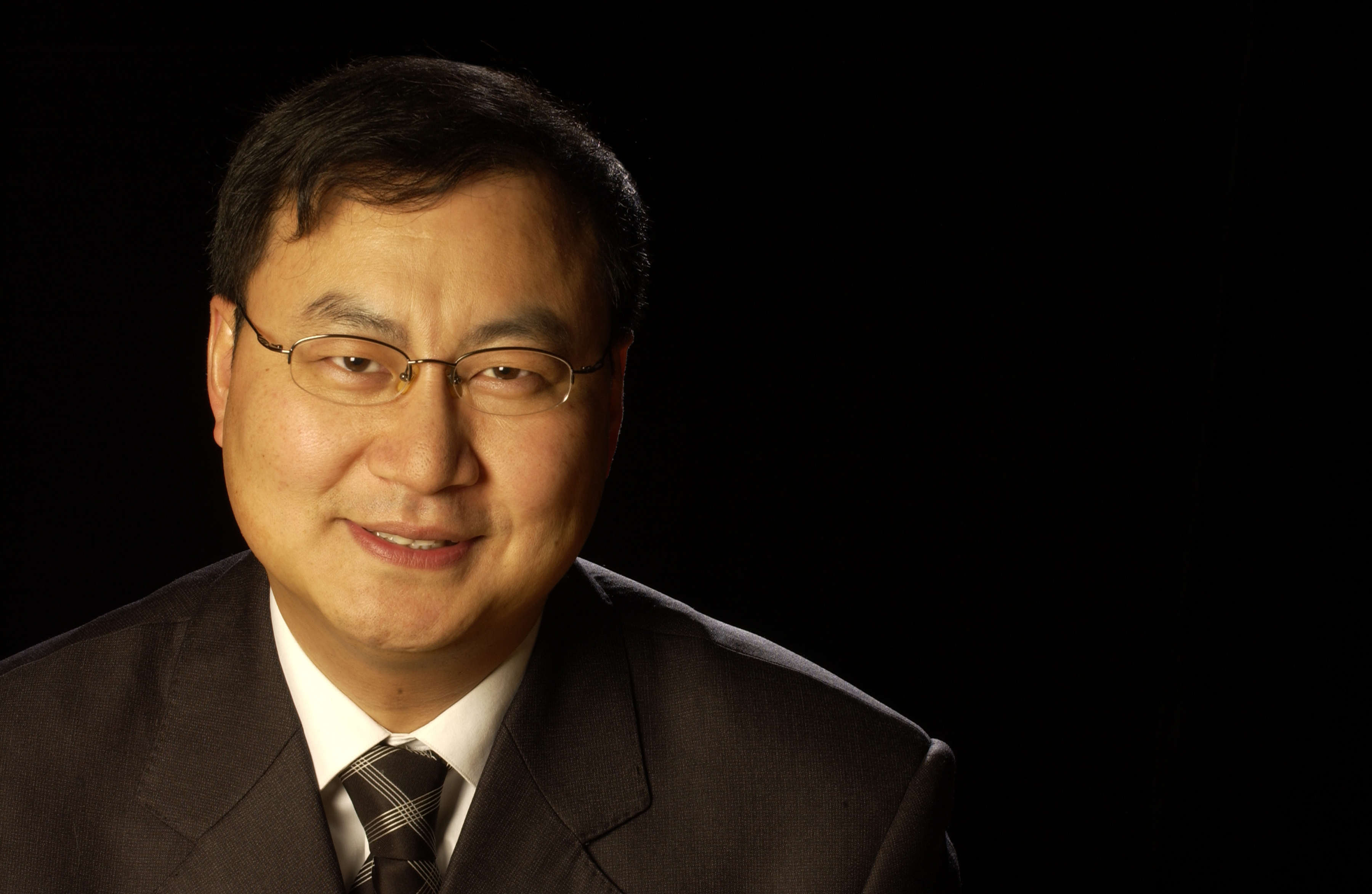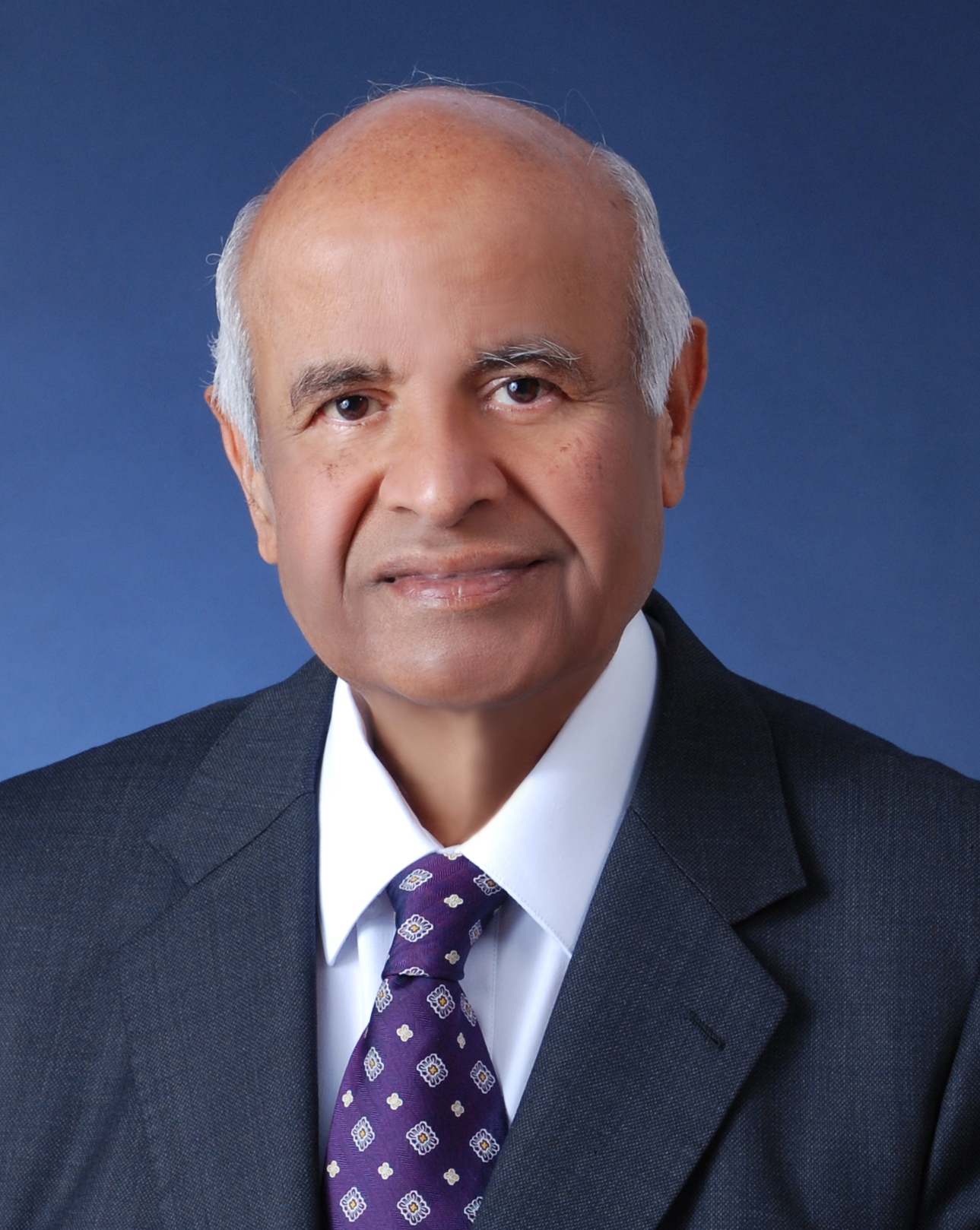Gold Medal
IEEE Montreal Section Gold Medal
The IEEE Montreal Section rewards its most active and great achievers members in their long career path and their impact on national and global technological and educational advancement. The IEEE Montreal Section has worked out an effective plan with the IEEE Canadian Foundation (ICF) in order to secure the recognition of Gold Medalist of each year for many years to come. This initiative is a way that the Section wants to reward all the excellent work that are being done by its star IEEE members. This recognition program is run by request for Nominations and the Selection Committee decides on the final winner among the potential candidates. The celebration of the winner award will be at our annual Annual General Meeting (AGM) and the Annual Banquet of each year.
2024: Ambrish Chandra
Biography: Ambrish Chandra received Bachelor of Engineering (B.E.) degree from the University of Roorkee (presently IIT Roorkee), M. Tech. from IIT Delhi, both in India, and Ph.D. from University of Calgary, Canada, in 1977, 1980, and 1987, respectively. Before joining as an Associate Professor at École de technologie supérieure (ÉTS), Montreal, in 1994, he worked as an Associate Professor at IIT Roorkee. Since 1999, he is a full professor of Electrical Engineering at ÉTS. From 2012-15, he was the director of multidisciplinary graduate program on Renewable Energy and Energy Efficiency at ÉTS. Presently, he is the director of master program in electrical engineering. The innovative technologies and engineering solutions proposed by Dr. Chandra have brought key and enabling differentiation because of their simplicity and practicality. The primary focus of his work is related to the advancement of new theory and control algorithms for power electronic converters for the power quality improvement in distribution systems and for the integration of renewable energy sources. He is a co-author of more than 470 research articles, and also a co-author of John Wiley book ‘Power Quality – Problems and Mitigation Techniques’. His work has had a significant impact and is now extensively referred by engineers and researchers around the world, as evident by total Google Scholar citations of more than 26 500, h-index of 67, and i10-index of 306. He has been General Chair/Finance Chair of many International IEEE conferences. He has been the member of many IEEE committees, including the Chair of prestigious International IEEE Nikola Tesla Award Committee. He has been the Distinguished Lecturer of IEEE Power and Energy Society and IEEE Industry Application Society. He has been invited to give Distinguished Lectures/Keynote Speeches in 35 countries. He is Fellow of many organizations, including Life Fellow IEEE, Canadian Academy of Engineering (FCAE), Engineering Institute of Canada (FEIC), Institute of Engineering and Technology, U.K. (FIET), Institution of Engineers, India (FIE), and the Institution of Electronics and Telecommunication Engineers, India (FIETE), and registered as a Professional Engineer in the province of Quebec. He is the recipient of ‘IEEE Canada Inaugural P. Ziogas Electric Power Award 2018’, ‘IEEE Power and Energy Society Nari Hingorani Custom Power Award 2021’, ‘Distinguished Alumnus Award 2022’, Indian Institute of Technology, Roorkee, India, and ‘IETE – Bimal Bose Award 2024’, Institution of Electronics and Telecommunication Engineers, India.
2023: Ashok Vijh
Biography: Ashok Vijh is a Life Fellow of IEEE, a Maître-de-recherche at the Institut de recherche
d’Hydro-Québec and, was concurrently, Invited Professor at the National Institute of
Scientific Research (INRS) of Université du Québec, both in Varennes, QC, CANADA.
Elected to The Royal Society of Canada in 1985, he was President of The Academy of
Science of The Royal Society of Canada (2005-2007). He is an electrochemist of
international stature who has published 416 refereed papers and eight books on various
areas of interfacial electrochemistry, focussed on energy transition to a decarbonized
economy on subjects such as fuel cells, hydrogen electrolysers, advanced batteries,
photoelectrochemistry. He has also made seminal contributions to dielectrics and
insulations and corrosion problems in electrical energy industry. His work has been
recognized by the award of over 60 distinctions: prizes, medals, decorations, fellowships,
honorary doctorates, academy memberships and membership in international editorial
boards. His research contributions have been recognized by his peers in the areas of
Chemistry, Physics, Chemical Engineering, Electrical Engineering, and Energy Science.
He was the youngest winner of the I.W. KILLAM Memorial Prize—the highest Canadian
prize in any field of science– of The Canada Council in 1987. He was the first physical
scientist to become a Knight of the National Order of Quebec in 1987, promoted to the rank
of Officer in 2008. He was decorated as an Officer of the Order of Canada in 1990. He
received the Golden Jubilee Medal (2002) and the Diamond Jubilee Medal (2012) from Her
Majesty Queen Elizabeth II. In 2017, he was made a Knight of the Order of Montreal to
further recognize his scientific research. He was also recognized by the highest prize of
ACFAS—Prix Archambault and the highest Quebec prize—Prix du Quebec—Prix Marie-
Victorin. Thus he is the most celebrated and decorated Fellow of Montreal section of IEEE.
2022: Shen-En Qian
Biography: Shen-En Qian is a senior engineer of spacecraft optical payload at the Canadian Space Agency, where he started as a NSERC post-doctorial visiting fellow in 1994. He received his PhD in 1990 and continued his study in France as a post-doctoral fellow before moving to Canada. Dr. Qian is a Canadian authority and a world lead in optical payloads and space missions. He invented nine breakthrough space technologies in Canadian government laboratories and holds 35 patents worldwide. These technological solutions have helped overcome the challenges encountered in developing Canadian space missions and lower their costs. His inventions have been transferred to industry and built into commercial products. As a technical authority of Government R&D contracts, he provides leadership to Canadian industry in the development of innovative space technology and helps them enhance their competitiveness and open up new markets in the world. He promotes collaborative research with academia and assists universities to train the next generation of engineers. He is an internationally renowned scholar in space science. As a sole author, he published three books on optical satellites and their applications. These books are the first in the fields and have lasting impact on the engineering and scientific communities. He co-authored five other books and published over 130 scientific papers. He demonstrated leadership as a Canadian engineer by leading around 200 space experts in the world in editing a must-have handbook titled Optical Payloads for Space Missions. The Governor General of Canada presented him with the Public Service Award of Excellence in the category Scientific Contribution for his exceptional contributions in advancing the Canadian space programs in 2016. He received the Canadian Government Invention award and the European Union’s Marie Curie Award. He is a fellow of the International Society for Optics and Photonics (SPIE), a fellow of the Canadian Academy of Engineering.
2021: Srikanta M. N. Swamy
Biography: Srikanta M. N. Swamy received the B.Sc. (Hons.) degree in Mathematics from Mysore University, India, the Diploma in Electrical Communication Engineering from the Indian Institute of Science, Bangalore, and the M.Sc. and Ph.D. degrees in Electrical Engineering from the University of Saskatchewan. He was conferred in 2009 the title of Honorary Professor at National Chiao Tong University in Taiwan. He is presently a Research Professor and holds the Concordia Chair in Signal Processing at Concordia University, Montreal, QC, Canada, where he served as the Founding Chair of the Department of Electrical Engineering from 1970 to 1977, and Dean of Engineering and Computer Science from 1977 to 1993. He has published extensively in the areas of number theory, circuits, systems and signal processing, and holds five patents. He is the coauthor of nine books and several book chapters. He has supervised over 100 M.A. Sc. and Ph. D. theses. Dr. Swamy is a Fellow of many societies including IEEE, IET and EIC. He has served the IEEE in various capacities such as the Vice-President and President of the Circuits and Systems (CAS) Society, Editor-in-Chief of the IEEE Trans. on Circuits and Systems, and Program Chair and General Chair for CAS Symposiums. He is the recipient of many IEEE-CAS Society awards, including the Education Award, Golden Jubilee Medal and the Guillemin-Cauer Best Paper Award, as well as the Constantin Budeanu Award from the Romanian Academy. He has been an active member of the IEEE Montreal Section since 1968. He was a member of the CSEE/IEEE Joint Publications Council from 1977-1982 and its Chair in 1981-1982, and was responsible for setting directions for what is now the IEEE Canadian Journal of Electrical and Computer Engineering. He founded the Montreal Chapters of both the IEEE CAS and Signal Processing Societies and served as their Chair during 1976-1978. Since 1999, he has been the Editor-in-Chief of the journal, Circuits, Systems and Signal Processing (CSSP), which has instituted the best paper award in his name in recognition of his contributions.
2019: Robert Boily
Biography: Dr. Robert Boily, C.Q., Ph.D., FRSC, FAPS, FInstP (UK), FIET (UK), FAAAS, SMIEEE, Honorary Lieutenant Colonel of the Canadian Armed Forces, is a high-ranking researcher and a senior science/engineering advisor to government agencies, universities, research centres and the industry. He worked extensively over more than three decades with the National Research Council of Canada, the Canadian Space Agency, the Department of National Defence, the National Institute of Scientific Research (INRS), Hydro-Quebec and many other institutions. He has academic and professional backgrounds in physics, electronics, optoelectronics, semiconductors, micro-imaging, and a career spanning more than 40 years at the leading edge of discovery and innovation. He conducted more than 1000 research projects and has contributed to the development of numerous sectors of innovation, such as femtosecond lasers, terahertz and infrared imaging, nanotechnology, 3D laser vision, solid-state lighting, organic light-emitting polymers, fiber optic sensors, high-performance electrodes and proton beams. The Government of Canada commissioned him several times to conduct research projects of national importance in the fields of renewable energy, military technologies, and microgravity research onboard the International Space Station and suborbital flights. Among his many distinctions, Mr. Boily was honoured twice in Washington D.C. and decorated by the governments of France, Canada and Quebec. He is the only Canadian citizen to have ever received the Meritorious Service Award of the Armed Forces Communications and Electronics Association (USA) for his work on military electronic and optical technologies.
2018: Federico Rosei
Biography: Federico Rosei has held the Canada Research Chair (Junior) in Nanostructured Organic and Inorganic Materials between 2003 and 2013. He is a Professor and Director of Institut National de la Recherche Scientifique, Énergie, Matériaux et Télécommunications, Université du Québec, Varennes (QC) Canada. Since January 2014 he holds the UNESCO Chair in Materials and Technologies for Energy Conversion, Saving and Storage and since May 2016 he also holds the Canada Research Chair (Senior) in Nanostructured Materials. He received MSc and PhD degrees from the University of Rome “La Sapienza” in 1996 and 2001, respectively. Dr. Rosei’s research interests focus on the properties of nanostructured materials, and on how to control their size, shape, composition, stability and positioning when grown on suitable substrates. He has extensive experience in fabricating, processing and characterizing inorganic, organic and biocompatible nanomaterials. His research has been supported by multiple funding sources from the Province of Quebec, the Federal Government of Canada as well as international agencies. He has worked in partnership with over twenty Canadian R&D companies. He is co-inventor of three patents and has published nearly 300 publications in prestigious international journals, has been invited to speak at various international conferences and has given countless seminars and colloquia, professional development lectures and public lectures in many countries. He is Fellow of numerous prestigious national and international societies and academies, including: the Royal Society of Canada, the European Academy of Science, the African Academy of Sciences, the World Academy of Art and Science, the World Academy of Ceramics, the Academia Europaea, the American Physical Society, AAAS, the Optical Society of America, SPIE, the Canadian Academy of Engineering, ASM International, the Royal Society of Chemistry (UK), the Institute of Physics, the Institution of Engineering and Technology, the Institute of Materials, Metallurgy and Mining, the Engineering Institute of Canada, the Australian Institute of Physics, Honorary Fellow of the Chinese Chemical Society, Foreign Member of the Mexican Academy of Engineering, Senior Member of IEEE, Alumnus of the Global Young Academy and Member of the Sigma Xi Society. He has received several awards and honours, to name a few: the FQRNT Strategic Professorship the Tan Chin Tuan visiting Fellowship, the Senior Gledden Visiting Fellowship, Professor at Large at UWA, a Marie Curie Post-Doctoral Fellowship from the European Union, the Sigma Xi Distinguished Lectureship, the Sichuan 1000 talent (short term) award, the Lee Hsun Lecture Award the Changbai Mountain Friendship Award and the APS John Wheatley Award, Steacie Fellowship of NSERC, Rutherford Medal of The Royal Society of Canada.
2017: Gregory Dudek
Biography: Gregory Dudek is a Professor with the McGill School of Computer Science, a member of the McGill Research Centre for Intelligent Machines (CIM) and an Associate member of the Dept. of Electrical Engineering at McGill University. He is the founder and the director of the McGill Mobile Robotics Laboratory, where he carries out most of his research. Prof. Dudek was the Director of the McGill School of Computer Science between 2008-201 6. He is the former Director of McGill’s Research Center for Intelligent Machines, a 25 year old inter-faculty research facility. Since 201 2, Prof. Dudek has lead the NSERC Canadian Field Robotics Network (NCFRN) as its Scientific Director, leading the network initiatives with 8 renowned Canadian universities as well as 1 0 industrial partners and 3 government agencies. In 2002 he was named a William Dawson Scholar. In 2008 he was made James McGill Chair. In 201 0 he was awarded the Fessenden Professorship in Science Innovation and in the same year he also received the Award for Research Excellence and Service to the Research Community, from the Canadian Image Processing and Pattern Recognition Society (CIPPRS). He has chaired and been otherwise involved in numerous national and international conferences and professional activities concerned with robotics, automated sensing systems and computer vision, including: Robotics Systems and Science (RSS), the IEEE International Conference on Robotics and Automation (ICRA), the IEEE/RSJ International Conference on Intelligent Robotics and Systems (IROS), the International Joint Conference on Artificial Intelligence (IJCAI) and the Canadian Conference on Computer and Robot Vision (CRV). He has acted as president of CIPPRS, the Canadian Information Processing and Pattern Recognition Society, as well as, a national affiliate of the International Association for Pattern Recognition (IAPR). He is the General Chair for the 201 9 edition of ICRA, which will be hosted in Montréal. Prof. Dudek took his first sabbatical in 2000-2001 as Visiting Associate Professor at the Department of Computer Science at Stanford University and at Xerox Palo Alto Research Center (PARC). During his second sabbatical in 2007-2008 he visited the Massachusetts Institute of technology and co-founded the company Independent Robotics Inc. In 201 6-201 7, he returned to Stanford as a visiting professor while on his third sabbatical. He obtained his PhD in computer science from the University of Toronto, with a thesis on shape understanding and computational vision. He obtained his M.Sc. in computer science at the University of Toronto, and his B.Sc. in computer science and physics at Queen’s University. He has co-authored over 200 research papers on subjects including: visual object description and recognition, navigation and map construction in robotics, distributed system design and biological perception. Among his publications we can count the book “Computational Principles of Mobile Robotics”, co-authored with Prof. Michael Jenkin, and by Cambridge University Press. His growing list of research interests revolve around the deployment of embodied autonomous agents, and includes: robot perception, autonomous navigation and state estimation, environment and shape modeling, computational vision and recommendation systems. He grew up in Montreal and favors light food. With his children he is re-discovering model-rocketry, roller-blading, and has discovered he’s not good at surfing but loves it.
2016: David Plant
Biography: Dr. David V. Plant received the Ph.D. degree from Brown University Providence, RI, USA, in 1989. He was a Research Engineer at the University of California Los Angeles, Los Angeles, CA, USA, in 1989–1993, and has been a Professor at McGill University, Montreal, QC, Canada, since 1993, where he holds a James McGill Professorship. He has received five teaching awards and numerous other awards including the IEEE Photonics Society Distinguished Lectureship, the IEEE Microwave Theory and Techniques Society Microwave Prize, the IEEE Photonics Society Distinguished Service Award, a Killam Research Fellowship, and the IEEE Photonics Society Engineering Achievement Award. He is a Fellow of the IEEE, the OSA, the Engineering Institute of Canada, the Canadian Academy of Engineering, and the Royal Society of Canada.
2015: Ke Wu

Biography: Dr. Ke Wu received B.Sc. degree (with distinction) in radio engineering from Nanjing Institute of Technology (now Southeast University), China, in 1982 and D.E.A. and Ph.D. degrees in optics, optoelectronics, and microwave engineering (with distinction) from Institut National Polytechnique de Grenoble (INPG) and University of Grenoble, France, in 1984 and 1987, respectively. Dr. Wu is a professor of electrical engineering and Tier-I Canada Research Chair in RF and millimeter-wave engineering at the Ecole Polytechnique (University of Montreal). He has been the Director of the Poly-Grames Research Center. He was the founding Director of the Center for Radiofrequency Electronics Research of Quebec (Regroupement stratégique of FRQNT). He has also held guest, visiting and an honorary professorship at many universities. He has authored or co-authored over 1000 referred papers, and over 20 books/book chapters and filed more than 30 patents. He has graduated 52+ Ph.D. and 84+ M. Sc. students. He has frequently provided consulting services to corporations, governments, and universities worldwide. He has given 400+ invited and distinguished lectures as well as numerous keynote speeches around the world. He is among the most-cited researchers in the field with 23260+ citations and 66 h-index and 500+ i10-index (Google Scholar). His current research interests involve substrate integrated circuits (SICs), antenna arrays, advanced CAD and modeling techniques, wireless power transmission and harvesting, and development of low-cost RF, millimeter-wave and terahertz transceivers and sensors for wireless systems and biomedical applications. He is also interested in the modeling and design of microwave and terahertz photonic circuits and systems. Dr. Wu is a member of Electromagnetics Academy, the Sigma Xi Honorary Society, and the URSI. He has held key positions in and has served on various panels and international committees including the chair of technical program committees, international steering committees, and international conferences/symposia. In particular, he was the general chair of the 2012 IEEE MTT-S International Microwave Symposium. He has served on the editorial/review boards of many technical journals, transactions, proceedings and letters as well as scientific encyclopedia including editors and guest editors. He is currently the chair of the joint IEEE chapters of MTTS/APS/LEOS in Montreal. Dr. Wu is an elected IEEE MTT-S AdCom member for 2006-2015 and served as Chair of the IEEE MTT-S Transnational Committee, Member and Geographic Activities (MGA) Committee and Technical Coordinating Committee (TCC) among many other AdCom functions. He is the 2015 IEEE MTT-S President-Elect and will become the 2016 IEEE MTT-S President. Dr. Wu is the inaugural three-year representative of North America as Member of the European Microwave Association (EuMA) General Assembly. He was the recipient of many awards and prizes including the first IEEE MTT-S Outstanding Young Engineer Award, the 2004 Fessenden Medal of the IEEE Canada and the 2009 Thomas W. Eadie Medal of the Royal Society of Canada, the Queen Elizabeth II Diamond Jubilee Medal in 2013, the 2013 FCCP Education Foundation Award of Merit, the 2014 IEEE MTT-S Microwave Application Award, the 2014 Marie-Victorin Prize (Prix du Quebec – the highest distinction of Québec in the natural sciences and engineering), and the 2015 Prix d’Excellence en Recherche et Innovation of Polytechnique Montréal. He has been recognized as the “father of substrate integrated waveguides and circuits” in the world. He is a Fellow of the IEEE, a Fellow of the Canadian Academy of Engineering (CAE) and a Fellow of the Royal Society of Canada (The Canadian Academy of the Sciences and Humanities). He was an IEEE MTT-S Distinguished Microwave Lecturer from Jan. 2009 to Dec. 2011.
2014: Vijay K. Bhargava

Biography: Dr. Vijay Bhargava (FIEEE) is currently a professor at the University of British Columbia, completing all of his post-secondary education at Queen’s University in Kingston. Previously he held positions with the Indian Institute of Science, Concordia University, and the University of Victoria. His many years of service for IEEE Region 7 (Canada) began in Montreal Section. He served as Student Branch counselor at Concordia, then in various capacities including Section Chair, and later similarly in Victoria Section. In 1987 he founded the IEEE Pacific Rim Conference in Communications, Computers and Signal Processing—now a well-established biennial conference in Victoria. In the same year, Vijay was appointed editor-in-chief of the Canadian Journal of Electrical and Computer Engineering, which had been struggling financially. To generate funding he founded the Canadian Conference on Electrical and Computer Engineering. It is now a flagship conference of IEEE. He served as the Director of Region 7 (Canada) during 1992 and 1993. During his tenure, he forged new programs, initiated steps for the creation of IEEE Canada, and led the building of a massive reserve for the Region. He was nominated twice for the Office of IEEE President-Elect. A Fellow of the IEEE, the Royal Society of Canada, the Canadian Academy of Engineering and the EIC, Vijay’s teaching, research and service to the profession have been recognized through various awards, including IEEE Canada’s Outstanding Engineering Educator Award in 2010. He is married to Yolande Henri of Warwick, Québec. Their son Alexandre is a behavioral neurologist and daughter Maude is a clinical dietitian.
2013: Renato Bosisio
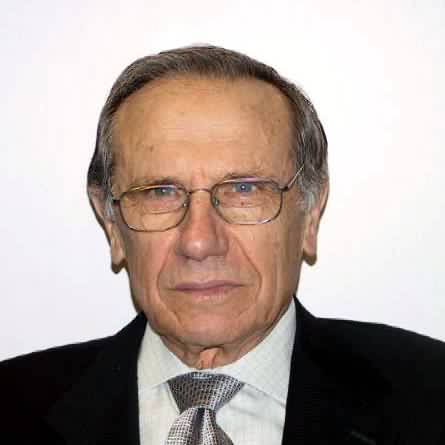
Biography: Professor Renato G Bosisio is professor Emeritus of Electrical Engineering at École Polytechnique (University of Montreal), and founding director of “Centre de recherche Poly-Grames ”(CRP) established to provide electrical engineering graduate students with advanced research facilities in microwave and millimeter wave engineering. CRP’s experimental and theoretical facilities enable graduate students to undertake advanced research projects on active and passive microwave components, devices, hybrid and monolithic integrated circuits and sub-assemblies The theoretical and experimental research facilities available at CRP provide unique training skills to numerous electrical graduate students enrolled in Doctoral and Masters programs at École Polytechnique. Most graduate students terminating their research projects at CRP join companies in America, Europe, and Asia, to work on design, fabrication and testing of modern communication equipment. Some graduates have joined the teaching staff of electrical and computer engineering departments in other Canadian universities. CRP research activities have attracted scientists and researchers from all over the world. Pr. Bosisio and his research team invented a new six-port receiver for software defined radio (SDR) applications. Renato G. Bosisio is Life Fellow of IEEE, a member of order of Professional Engineers of Quebec, a member of Phi Kappa Phi, Sigma Psi learned societies and McNaughton medalist.

